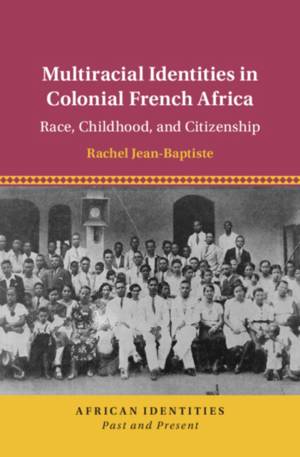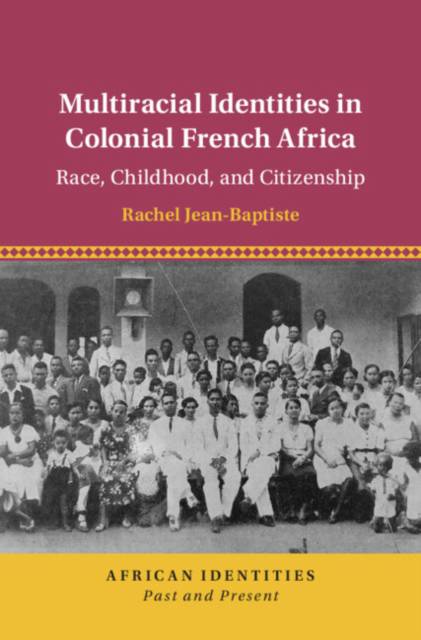
Door een staking bij bpost kan je online bestelling op dit moment iets langer onderweg zijn dan voorzien. Dringend iets nodig? Onze winkels ontvangen jou met open armen!
- Afhalen na 1 uur in een winkel met voorraad
- Gratis thuislevering in België vanaf € 30
- Ruim aanbod met 7 miljoen producten
Door een staking bij bpost kan je online bestelling op dit moment iets langer onderweg zijn dan voorzien. Dringend iets nodig? Onze winkels ontvangen jou met open armen!
- Afhalen na 1 uur in een winkel met voorraad
- Gratis thuislevering in België vanaf € 30
- Ruim aanbod met 7 miljoen producten
Zoeken
Multiracial Identities in Colonial French Africa
Race, Childhood, and Citizenship
Rachel Jean-Baptiste
€ 158,95
+ 317 punten
Omschrijving
Despite increasingly hardened visions of racial difference in colonial governance in French Africa after World War I, interracial sexual relationships persisted, resulting in the births of thousands of children. These children, mostly born to African women and European men, sparked significant debate in French society about the status of multiracial people, debates historians have termed 'the métis problem.' Drawing on extensive archival and oral history research in Gabon, Republic of Congo, Senegal, and France, Rachel Jean-Baptiste investigates the fluctuating identities of métis. Crucially, she centres claims by métis themselves to access French social and citizenship rights amidst the refusal by fathers to recognize their lineage, and in the context of changing African racial thought and practice. In this original history of race-making, belonging, and rights, Jean-Baptiste demonstrates the diverse ways in which métis individuals and collectives carved out visions of racial belonging as children and citizens in Africa, Europe, and internationally.
Specificaties
Betrokkenen
- Auteur(s):
- Uitgeverij:
Inhoud
- Aantal bladzijden:
- 292
- Taal:
- Engels
- Reeks:
Eigenschappen
- Productcode (EAN):
- 9781108489041
- Verschijningsdatum:
- 8/06/2023
- Uitvoering:
- Hardcover
- Formaat:
- Genaaid
- Afmetingen:
- 152 mm x 229 mm
- Gewicht:
- 594 g

Alleen bij Standaard Boekhandel
+ 317 punten op je klantenkaart van Standaard Boekhandel
Beoordelingen
We publiceren alleen reviews die voldoen aan de voorwaarden voor reviews. Bekijk onze voorwaarden voor reviews.











